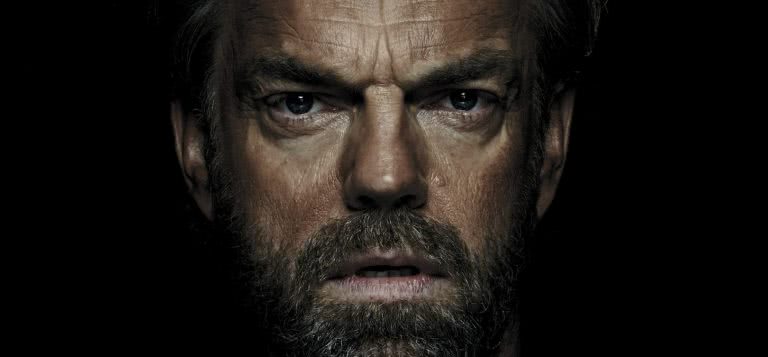Double, double toil and trouble / Fire burn, and cauldron bubble…
…or at least it will at the Sydney Theatre Company as William Shakespeare’s Macbeth makes a triumphant return with Hugo Weaving in the title role. If this weren’t enough of a drawcard, the production will be subverting theatre protocol by having the audience sit on the stage whilst the actors perform throughout the auditorium. Actor Ivan Donato, who will be playing both Seyton and one of the infamous witches, discusses this different approach to production.
“I don’t want to give too much away, but the thinking behind this particular production of Macbeth is to make it quite theatrical, so therefore actually putting the performers in the auditorium and the audience on the stage. There’s certain elements of creating characters on the stage that are happening and quite a lot of stylisation.
“We haven’t been in the theatre yet because we’re waiting for it to be gutted, so we’re very excited to see it,” Donato says. “It’s a once-in-a-lifetime opportunity and it’s going to be a very special thing by means of that, and also having Hugo playing Macbeth as well, which is going to be really exciting. Just among other actors, particularly in our industry, he’s one of those people you look up to. He’s so accomplished and world-renowned.”
One of the most incredible things about Shakespeare’s work is the universality of its themes, alongside its adaptability to almost any context. Even so, the new approach by director Kip Williams comes from a well-considered place.
“I think this is becoming more and more prevalent in theatre in general, particularly in the major companies, where they don’t necessarily set it in a certain time or place,” says Donato. “It’s more ambiguous, and what that forces the audience to do is to use their imaginations a bit more in regards to the characters, the situation and the setting.
“If you set it in a particular time and place you constrain the piece, whereas if you allow it just to be itself in more of a box setting, it lives and breaths more than, for example, setting it in 1940s fascist Italy. Already that setting has its own connotations that I think takes away from the piece. A lot of the time what you’re trying to do then is fit your particular take on that production to the text as opposed to just letting it be what it is.”
This minimalistic and non-contextual approach to the production isn’t as odd or modern as one might initially think. In fact, Donato compares it to the Elizabethan approach to Shakespeare.
“They basically came on with nothing; very minimal props. So you can imagine that for Elizabethans to see these plays that talk about Italy and exotic places, it didn’t matter because they were speaking in their own language. They could talk about all of these wonderful areas and tell the story, which is very brave and something that you don’t see very often now. You don’t see an Australian production that’s set in Italy where it doesn’t matter if we speak with Australian accents. It’s a very brave thing to do.”
Last time Donato appeared in Macbeth, opening night had to be cancelled due to a large portion of the cast suffering food poisoning. Despite this, he doesn’t refer to it as “The Scottish Play” and he isn’t afraid of the alleged Macbeth curse.
“I don’t believe in curses, but touch wood that nothing happens with us here. I’m betting that something will happen once we get to theatre, though.”
Macbethis showing at theSydney Theatre Company fromMonday July 21 to Saturday September 27, tickets available online.


































